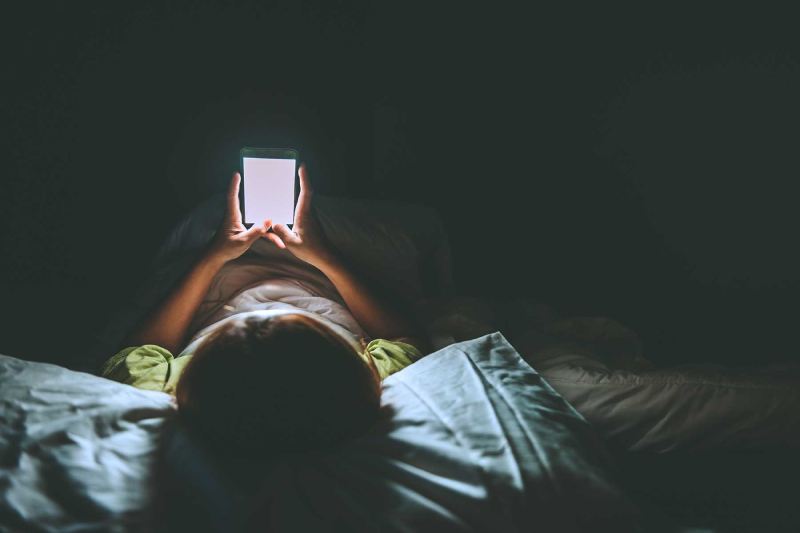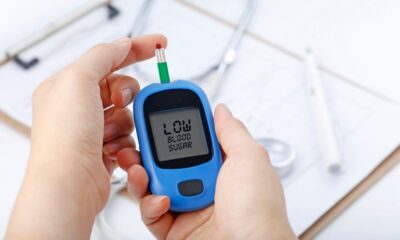Carried out a micro-experiment during a recent executive program. It was decided that participants would turn in their cell phones for the night and pick them up the following morning. They thought back on their feelings, ideas, and actions throughout the experiment. Talk of the following morning was intense: Some reported mindlessly reaching for their phones and experiencing sudden fits of “panic” when they realized they were missing; others felt angry or annoyed at not being able to look up information instantly; still others were anxious to explore the city’s streets without a GPS; and still others made up excuses for why they absolutely had to have their phones or why they were so afraid of missing anything. The ability to stop checking work emails and the increased awareness of their surroundings also made many feel emancipated at the same time.
More than half of people on the planet own a smartphone, and the devices have quickly and completely changed from being a luxury to a need. In the corporate world, our phones are essential for client management, learning and development, travel, communication, and information access. Without a doubt, mobile phones have greatly improved both our personal and professional life. They provide us with access to a plethora of individualized digital information, travel, entertainment, social connections, and global news in our daily lives. But an increasing number of scientific studies are emphasizing that their ubiquitous nature increases the likelihood of dysfunctional behavior, reliance, and overuse—all of which can have a host of negative knock-on effects on our relationships, productivity, and general well-being. This is the point where using a phone can get out of hand.
Indications of Phone Addiction
By combining scholarly studies from the fields of psychology, sociology, and neuroscience, we shed light on the warning signals of potentially problematic phone use. You may need to reevaluate your relationship with your phone when the costs begin to outweigh the benefits.
First, think about how you interact with and relate to your phone:
A Loss of Command
Are you an obsessive phone user? Do you regularly check it for no reason at all? Despite your best efforts, do you feel that you are unable to regulate how much you use? If you frequently, instinctively, and haphazardly take up your phone in even brief periods of idleness or boredom, such as while standing in line or during a break in conversation, your phone use is leaning toward addiction. It may be a red flag if you have a strong, compulsive want to check your phone even though you are aware that there are no updates or crucial communications.
Reliance
Do you get lost when your phone is gone? If it must be turned off for extended periods of time, do you get nervous, agitated, or angry? Are you obsessive about missing a text or phone call? This can be a problem if you experience severe worry or anxiety at the notion of being without your phone. Dependency is apparent when you feel as though you must use your phone for every everyday task, when it is out of reach, or when you find it impossible to ignore a text or email when you are unable to reply right away.
Managing Emotions
Is using your phone your only means of overcoming unpleasant feelings in your life, including boredom, irritation, or stress? Is it your way out of uncomfortable situations like social anxiety? Although using a mobile phone can help you temporarily reduce stress, it becomes problematic when you use it as your main coping mechanism for discomfort on a regular basis and prevents you from learning other coping mechanisms. This can set off a vicious loop because using a phone might temporarily ease your symptoms while also escalating your feelings of loneliness, worry, and FOMO.
These addictive behaviors might not be a concern until they start to interfere with your day-to-day activities. Determine whether using a phone interferes with your relationships with others, your emotions, or your ability to think clearly.
Negative Feelings
To put it plainly, does using your phone make you feel awful? After using it, do you experience increased tension and anxiety or loneliness? Do you conceal your use from other people or do you feel guilty or ashamed about it? Does using it for a few minutes cause you to feel overwhelmed and anxious? After using technology, people frequently experience bad emotions and moods. Studies have connected smartphone dependency to higher levels of loneliness and depression as well as poorer general wellbeing. Therefore, it may indicate that your phone-checking habit has become serious if you usually feel bad afterward.
Compromised Concentration and Performance
Does using your phone prevent you from completing crucial tasks? continually divert you? restrict your capacity for clear thought? Smartphones can undoubtedly improve human cognition, but even when they are not in use, the sheer sight of a phone can drain the mental energy required to focus, think clearly, make thoughtful judgments, and control your emotions. Distractions and interruptions from your phone (such as those annoying notifications) can cause you to become less focused, which can result in errors, missed deadlines, inefficiencies, and occasionally even unsafe circumstances. Furthermore, using a phone in the evening can interfere with your capacity to mentally unplug and recuperate from the stress of the daytime, eventually making you feel more exhausted.
Strained Social Connections
Do you find it difficult to listen, comprehend, and participate in in-person conversations when you’re on your phone? Do the significant others in your life feel overlooked because you’re glued to your phone? It can be detrimental to your relationships in real life and an indication of problematic use if you constantly put your phone before the people in your immediate vicinity. Continually checking your phone at social events, family time, or significant personal occasions is one way to do this. One of the most crucial tools for managing stress and preserving wellbeing, social support, is diminished when using a phone, which also becomes a barrier to genuine interpersonal interaction.
You’re Not by Yourself
You’re not alone if you recognize yourself in several of the aforementioned descriptions. We studied 160 working people (from entry-level to middle and senior management or executive level) to investigate the prevalence and problematic aspects of mobile phone use using a pre-established scale and objective indicators (such phone pick-ups).
First, our phones interrupt us around every 13 minutes while we are awake. According to the respondents, they checked their phones 72 times a day on average and received 65 notifications. At entry-level positions, interruptions occur even more frequently—every 9.5 minutes—for younger workers.
Second, unfavorable consequences like stress were more closely linked to the perception of dependency and compulsion and the associated bad emotions than they were to the actual amount of time spent on the phone. Additionally, based on the criteria for cyber addiction used in this scale, 50% of respondents would be classified as “at-risk users” or “problematic users.” This indicates that using a phone in a potentially harmful way is prevalent and should be controlled to prevent negative effects on relationships and mental health in the future.
How to Take Back Some Authority
Recognize and understand these indicators to help you better negotiate the difficulties presented by these indispensable digital companions and make sure that you serve them, not the other way around:
Self-knowledge
First, become aware of the warning indications of problematic use and practice self-honesty. It can be necessary to do this by asking your friends, family, and coworkers if they have observed the previously mentioned behavioral patterns. Next, resolve to make a change. A few experiments similar to the one we ran at the executive program could be a good place to start. Observe your thoughts, emotions, and actions while you are not using your phone.
Self-control
One of the most important first steps in minimizing harmful cell phone use is setting clear boundaries. This can entail setting up specific times, like before bed or during meals or family get-togethers, to use phones. To avoid being distracted when working on a task that requires your whole attention, put your phone away from your desk, dining table, or bedside and turn down the notifications while you’re working. You may even lock up your phone and place restrictions on the apps or use categories you allow.
For instance, you may choose to restrict your usage of social media by setting a specified finish time or to check emails only during specific times of the day in order to avoid falling down the rabbit hole of content consumption. Putting these limits in place promotes a better harmony between the advantages of your phone and other important facets of your life. It takes time and repetition to break any habit, so it can feel more manageable to start small.Adaptable coping mechanisms
Instead of habitually pushing away uncomfortable emotions, practice other emotion- and stress-reduction techniques. Additionally, avoid letting your phone use undermine your tools for recovery, especially your capacity to emotionally distance yourself from your work. Physical activity, meditation, hobbies, forming connections with people, and spending time in nature are a few examples of these resources.
Expert Assistance
It could be required to seek professional assistance if your use of mobile phones has turned into a severe obsessive behavior or if it seriously interferes with your personal and professional life. This may entail seeing a mental health specialist with expertise in addiction or digital reliance for cognitive behavioral treatment. They can provide individualized plans and assistance to deal with the root reasons of problematic phone use. In addition, peer support and useful tools can be obtained through workshops or support groups centered around managing digital consumption.

 Diabetology2 weeks ago
Diabetology2 weeks ago
 Diabetology2 weeks ago
Diabetology2 weeks ago
 Diabetology7 days ago
Diabetology7 days ago
 Diabetology16 hours ago
Diabetology16 hours ago















